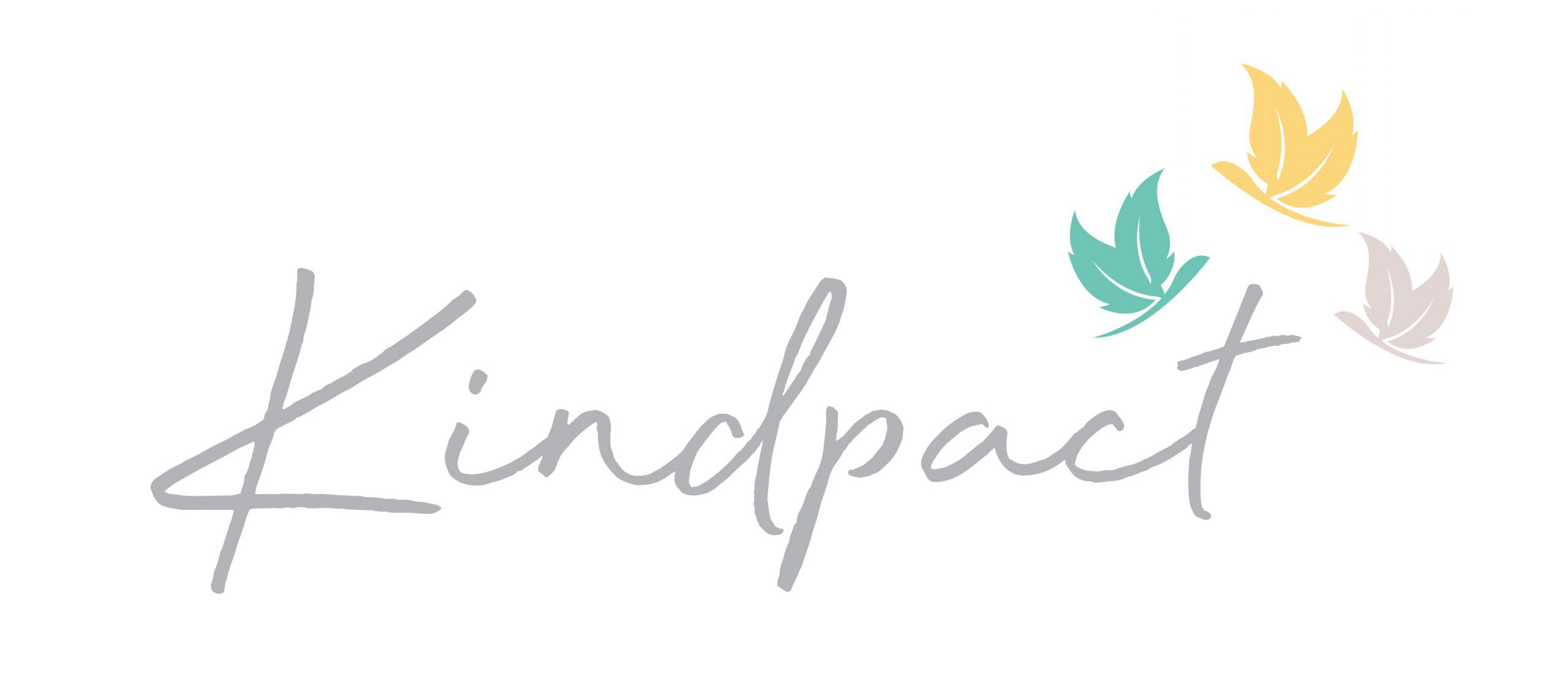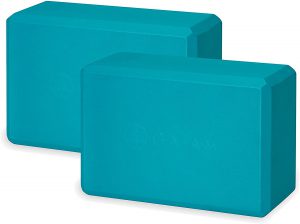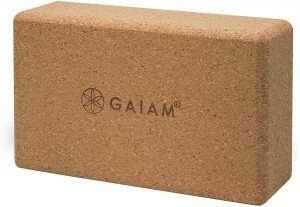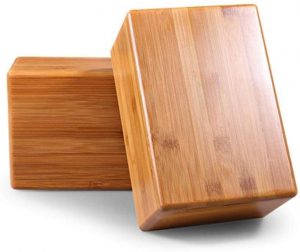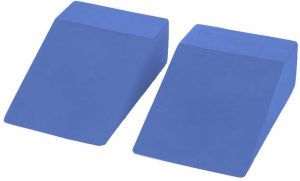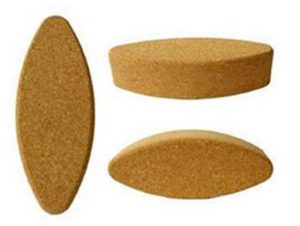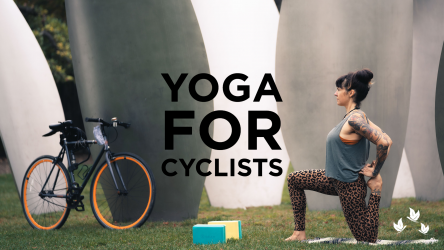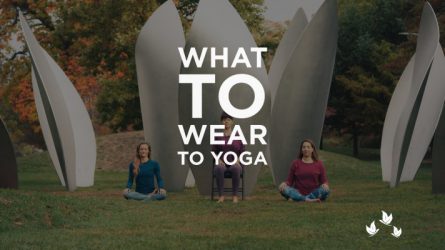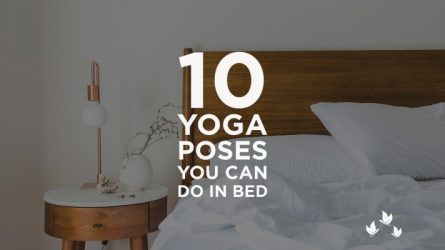This post may contain affiliate links which we receive a small commission on if you use our links.
If you’re just starting out on your yoga journey or you’re looking to deepen your practice, you will benefit from the trusty support of yoga blocks. Yoga blocks are often used to modify poses for beginners or those with injuries and compromised mobility who are unable to get into a pose. However, blocks have the power to transform and deepen the practice of even the most advanced yogi. If used mindfully and creatively, yoga blocks can help you experience the same posture in many different ways.
Yoga blocks are generally used in three ways – as extensions of the arms to raise the floor and bring it within reach, as supports to enable the body to settle into a pose or as strength builders. As extensions, blocks can help you receive a deeper stretch without compromising the alignment of the pose. This is especially useful if you have tight hamstrings or hips. As supports, blocks can protect your knees and back during poses while allowing the body to fall deeper into a stretch. As strength builders, blocks are generally held between the palms or thighs to enhance the engagement of the shoulders, core and glutes to build strength and tone the muscles.
Yoga blocks are potent tools to make your practice deeper and more fun. It is thus necessary to spend some time picking the right yoga blocks for your needs. Here is a list of our favorite yoga blocks and their unique features.
Foam Yoga Blocks: Gaiam Essentials Yoga Block
Foam yoga blocks are lightweight and easy to transport if you take your blocks with you to yoga class. These Gaiam Essentials Yoga Blocks are colorful and durable for your home or professional yoga studio.
Pros: These blocks provide all the benefits of foam for stability, joint protection and moisture absorption. Additionally, they are slightly heavier than other foam blocks which prevents slippage and adds extra stability to strength and flexibility enhancing poses. These blocks are great to use if you’re recovering from an injury or want to reduce pain in your wrists while you practice.
Cons: The foam is quite soft and hence can get easily scratched and damaged. If you place too much weight on them, they may dent and lose their shape. For those who prefer more stable blocks, some of the heavier blocks like cork or wood may be more appropriate for certain poses.
Uses: These blocks are ideal for restorative yoga and gentle yoga flows. They are soft and will provide relaxation in hip and chest openers.
Gaiam Cork Yoga Brick
Cork yoga blocks are hygienic and heavier than the common foam blocks. In some cases, this is preferred, especially when one needs blocks for stability. Other times this hardness and heaviness can be a little uncomfortable depending on the pose. If you have the budget and space, getting a pair of foam and cork blocks can be helpful so you have options.
Pros: This cork yoga block is made up of completely natural, sustainable cork material. The block is quite firm and the cork absorbs moisture, providing a firm grip for inversions and backbends.
Cons: Over time, pieces of cork may dislodge from the brick creating an uneven surface. The blocks are quite hard which make them uncomfortable for use in poses that are held for long periods of time.
Uses: These blocks are ideal for active yoga styles like Vinyasa, Ashtanga and Hatha. They are great to use in strength building poses targeting the shoulders, core and glutes.
Wooden-Life Bamboo Yoga Block
If you’re looking for sturdy blocks made of completely natural materials, these bamboo blocks are for you. These are ideal when you need stability but not cushioning. Bamboo blocks can be incredibly helpful for meditation or postures where you need to sit and need a solid base.
Pros: These blocks are aesthetically pleasing and made of natural, sustainably sourced bamboo wood, free from any synthetic materials and toxic glue/varnish. They have curved edges which make it easy to grip. The wood is extremely durable. Wooden blocks are quite heavy in comparison to foam blocks which make them ideal for adding stability and grounding to your yoga practice.
Cons: These blocks are not as soft as foam which can make them slightly uncomfortable to use for long periods of time in restorative practices like yin yoga. The wood also does not absorb moisture so the blocks can get slippery once you start sweating. These blocks are quite hard so they can cause injuries if you fall on them or bump into them during your practice.
Uses: These blocks are ideal to use for grounding and support in forward folds and hip openers. The weight of these blocks can be used to build strength in the glutes, arms and shoulders.
Yoga Foam Wedge Blocks from StrongTek
These wedge blocks, unlike regular rectangular blocks, give you a range of levels to choose from. Yoga block wedges can help with poses like Downward Dog underneath the feet or hands for stability.
Pros: Wedge blocks are easier to grip than regular blocks and will give you stability in your poses. The soft, foam material absorbs your weight, protecting your wrists and knees. A pair of wedge blocks can be stacked on top of each other to construct a regular block as well.
Cons: If you are practicing on a very smooth surface, these blocks, since they are made of foam, can slip. Before you practice any inversions, make sure you place the blocks on a surface with friction and play around with them to ensure they do not slip.
Uses: These wedge blocks provide stability to the wrists in inversions like handstands or backbends like Wheel Pose (Urdhva Dhanurasana). Wedge blocks are also great supports for squats since they aid with ankle mobility. If you have plantar fasciitis, these wedge blocks can help you stretch out your heels without having to move too much.
Yoga Blocks of All Sizes
Here you will find cork yoga blocks in a variety of different shapes. You will find regular rectangular blocks, wedges, cuboids, oval blocks, and long, flat supports. You can discover the perfect block for your needs. Using different sizes blocks can supplement your yoga practice by fulfilling different needs. For example, the oval blocks can assist by providing height without using the block as a crutch.
Pros: These blocks are made up of completely natural, sustainable cork which provide stability and a firm grip. The unique shapes can assist with every kind of pose from inversions to restorative, static holds.
Cons: The cork can get chipped and fall off with repeated use, making the surface uneven.
Uses: Based on your choice, these blocks can assist you with any kind of practice whether it is sweaty and intense or gentle and relaxing.
The process of finding a yoga block may take some time, but once you find the perfect one, you will be glad you spent the extra effort. It will soon become like your best friend during practice, providing you with not just support but the opportunity to play around and have fun. Be open to using your blocks in creative and unique ways and you will slowly realize that they will take your practice to a whole new level.
